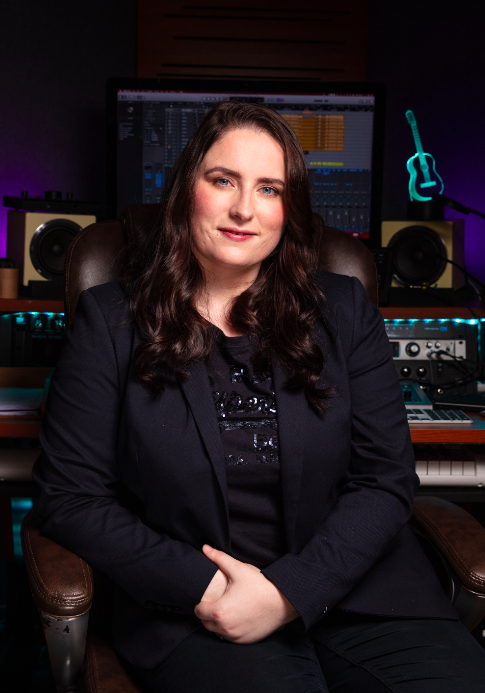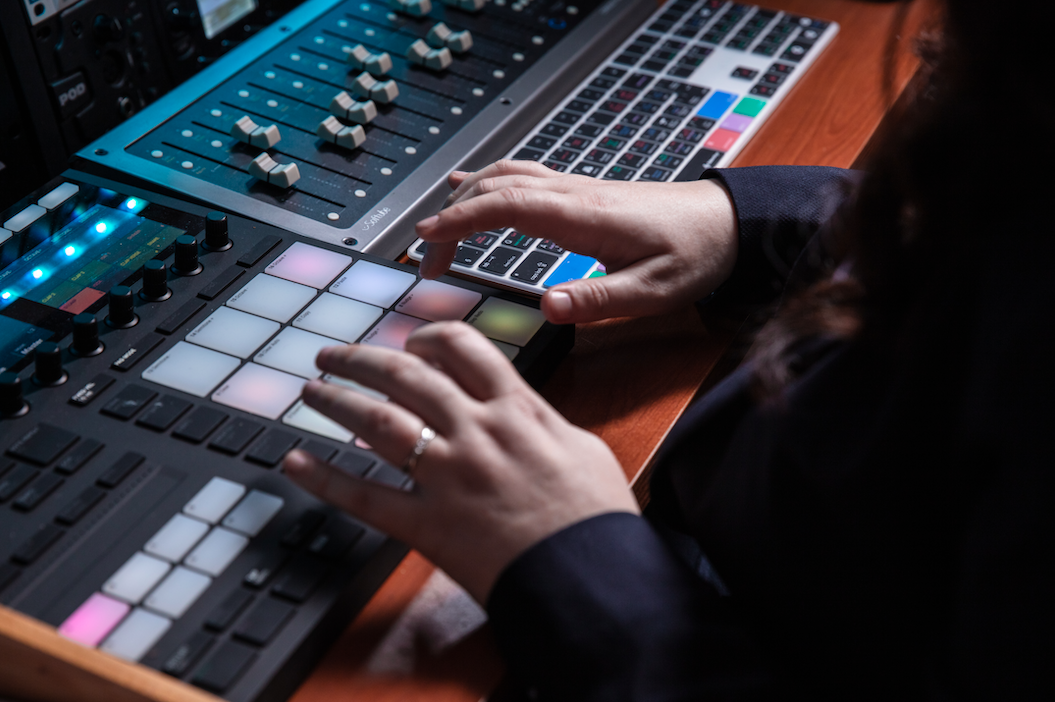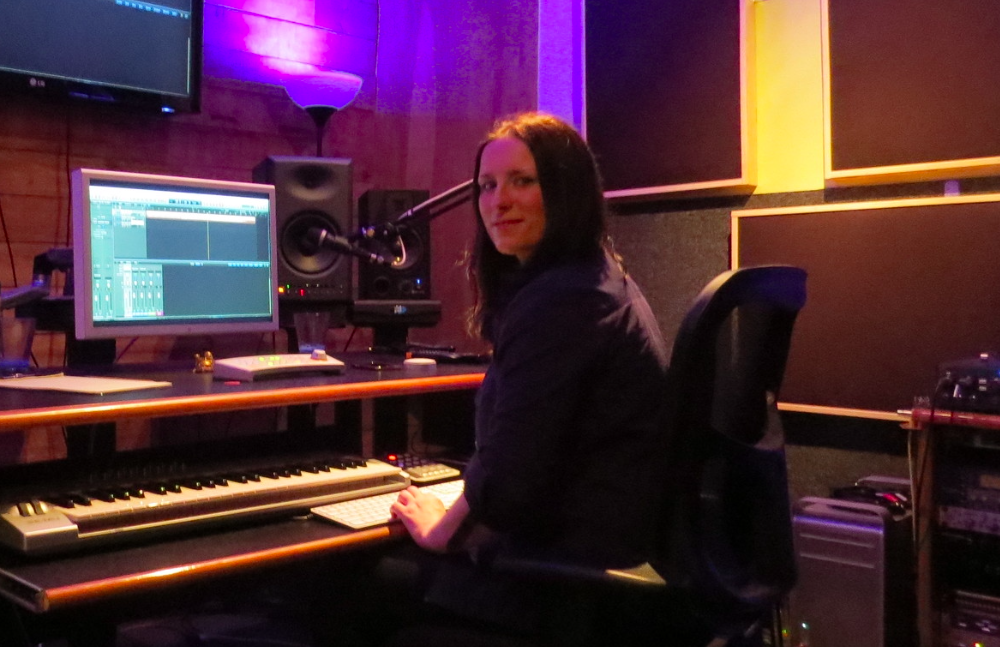Whitfield is proud to be one of the few female record producers from the UK, and does all she can to promote the important role of women in music.
“I think there is a slight shift now in attitude and more women are coming forward, but we have still got a long way to go. I always get asked, ‘Why do you think that is? Why aren't there more females in these roles?’ I don't know the answer, but take me as an example: I was a self producing artist for many years – I never even thought about becoming a producer. I think there are lots of other self producing females out there that probably haven't realised that they could do it as well, or it might be a good career option.
“I think it's to do with visibility,” she offers. “I think that all female producers who are doing quite well need to be more visible and say, ‘Hey! you can do this’. Maybe some women are getting put off by the fact that it can be quite technical, but it's actually more of a creative role.”
In Whitfield’s experience, do female artists tend to want to work with female producers?
“Yes,” she says, without hesitation. “The majority of my clients are female and quite a few of them have said to me that they have purposely sought out a female producer, and there's a couple of reasons. The first one is that they feel that they can be more comfortable in expressing what they want, and that they can connect with a female producer a bit more.
"A couple of my female clients have had bad experiences with male producers. One was locked in a studio with a male producer and couldn't get out, and there was another one who refused to release the masters unless she went to bed with him. I hear stories like that more than I should. But it is a minority of male producers, and as you know, most of them are very, very professional and courteous. It's mainly a connection thing, as I would say I have probably connected with my female clients more than with my male clients."
When approaching production, Whitfield says the drums are the most important part of her process:
“The drums are what makes a song sound modern or dated,” she reasons. “Everything is built around the drums. Then I'll do the bass after and then build all the other stuff around it. I always advise aspiring producers to work on their drums first.”
Native Instruments’ Maschine was the very first piece of studio gear Whitfield bought when she moved to London, and after getting rid of of her gear – she made sure it was the first piece of kit she bought when restarting her studio from scratch:
“It really helped me craft my sound as a producer. I only use it for drums and I don't use any of the built in drums that come with it; I source my own drum samples and I'll buy drum packs and programme the drums using the Maschine. I can get drums sounding like they do on the charts, or get them sounding like a real life drum kit using this bit of kit, although the drum samples are equally important because they need to sound good as well,” she points out. “I would be lost without this piece of equipment. I wouldn't be able to produce half as good as I can without it.”
She’s been using her trusty Universal Audio Apollo quad preamp for years, which all of her audio gear runs through.
“What I really like about this preamp is that you get access to all of these awesome plugins which basically copy the sound of big analogue recording desks. Absolutely everyone goes through it, regardless of vocal type or genre.
"It makes it sound like it's going through a big studio desk like at Abbey Road or something. When people came to record vocals, it sounded incredible straightaway, and I've got all those additional plugins that I can use to make it sound like they're going through a big analogue desk in a huge studio somewhere. That's a really clever trick to have up my sleeve.”
Cableguys ShaperBox 2 plugin has been getting quite the workout recently:
“It does all these really cool effects, like stutter or reverse or filters and sweeps – all kinds of crazy effects. If you're not that musical but you want to get some effects on a sound that you've got, you just put this plugin on, press some buttons and it will just add all these really cool effects. I can't think of anything else that has all of that in one plugin. There might be the odd client that comes through who wants me to do an EDM track or have an EDM effect, and that's where you tend to have these synth sounds that are quiet at the start, and then they build up and get louder and wider. ShaperBox 2 can help create those kinds of dance effects.”
Whitfield estimates that she does about 90% of her work on headphones:
“I don't really use the monitors because I just like to be absorbed in the music,” she explains. “Most of society listens to music via headphones, so you’ve got to make sure that it works on headphones. Monitors are more important for dance music because you need to know what it’s going to sound like in the club, but for the music that I produce which is mostly modern singer-songwriter stuff, headphones are quite an important tool.”
The lockdown period has not see Whitfield run short of work – in fact, she’s been really busy:
“I think a lot of people are stuck at home with nothing to do but write songs, so I've got absolutely loads of songs to produce, and I’m working on a few albums. I'm also going to be setting up a music project for myself, because I'm still an artist deep down," she smiles.



